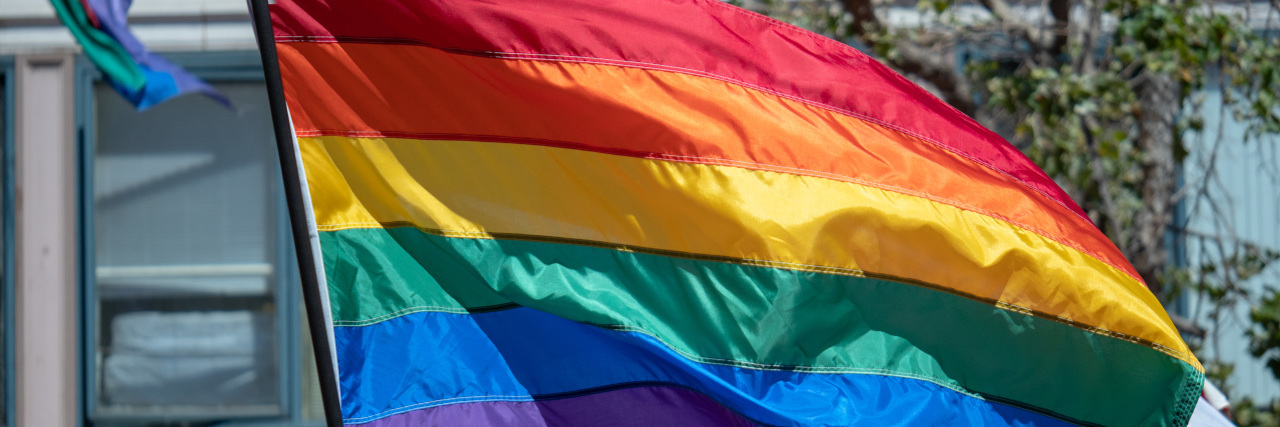I came out when I was 14. I’ve used many labels, experimented with many identities. From a young age, I knew I was queer. Coming out was a very positive experience for me, thanks to many supportive people. I felt like a huge weight had been lifted off of my shoulders, like I could breathe again. That feeling of relief and freedom has made me the strong, queer individual I am today. The year I came out was also the year I got sick.
I’m now 19, and on National Coming Out Day, I’m ready to tell my full story. Nothing hidden, nothing held back. I’m ready to tell the world I’m here, I’m queer and I’m disabled. I’m a chronically ill, gay woman.
Having been out for many years, I can safely say that coming out isn’t a one-time deal. You come out to people whenever they enter your life, to your loved ones and those who simply surround you. Coming out is a journey that never ends, a fact of life for a queer person. I have felt very little discomfort with coming out as queer, and am generally very open about it.
I’ve been lucky, but not all the time. I’ve had many people ghost me or leave because they couldn’t handle it. I understand their discomfort. Dealing with my conditions and reality can be a lot to cope with, particularly for a young person. Being rejected by someone due to my disability hurts, but being rejected within the already limited queer community hurts more.
The queer community is a party. We thrive in environments where we can be loud, with bright lights, music and dancing. I love being a part of such a vibrant and loud community, unashamed and fiercely strong. I don’t feel that love is always returned to me. Many queer events are notoriously unwilling to accept people like me, the members of the community who need some accommodations. When I attended the Philadelphia Pride parade this past year, accessible toilets were placed on a wooden platform, only accessible by steep and rickety stairs.
I do not fit in with the stereotypical image of the queer woman, or of the LGBTQ+ community. Loud, bright concerts aren’t necessarily fun for me. Standing and dancing without being able to sit is extremely difficult. The sensory overload Pride events bring on can leave me out of commission for days.
Trying to date is honestly a minefield. I live in a city where the queer community is predominantly male, and where finding someone compatible is like trying to find a needle in a haystack. Someone my age, single, with mutual attraction and things in common is already a tall order. Finding this within a smaller community of other queer women? That takes away about three-quarters of the population. When I manage to overcome all of this, I still need to find someone who can accept me for who I am, illnesses and all. While my conditions make me no less deserving of love, they do make it harder to find.
I don’t want to be someone’s fetish or someone’s pity project. I don’t need to be taken care of or treated like some kind of romanticized teen novel about sick kids who fall in love. I’m just me. I’m a strong, smart, capable woman. I’m funny and empathetic and stubborn and sarcastic; I love art and dogs and hate birds and jazz. I’m me, but part of me, a big part of me, is the struggles I face every day as a disabled person.
I have faith that one day I will find someone. I’m young, and quite honestly casual dating is still fun. But I do want something more serious. I will find a person who can accept me for who I am, and loves me through the pain flares and hospital visits along with the moments of joy and success. I happen to be pretty cool, and in no way undeserving of a healthy relationship. It’ll just take me a little bit longer. I have to put in a little bit of extra work and think things through a bit more. And that’s OK. I’m worth it, and so are all the other people out there who understand this experience. I’m here, I’m queer, I’m disabled and I’m worthy of love.
Follow this author on Instagram.
Getty image by David Tran.

